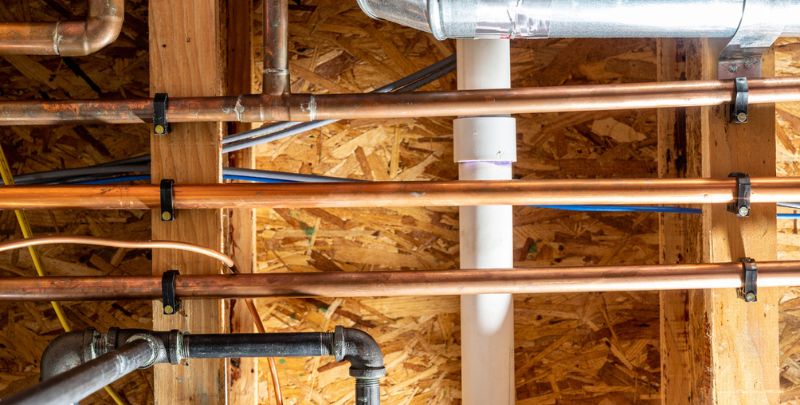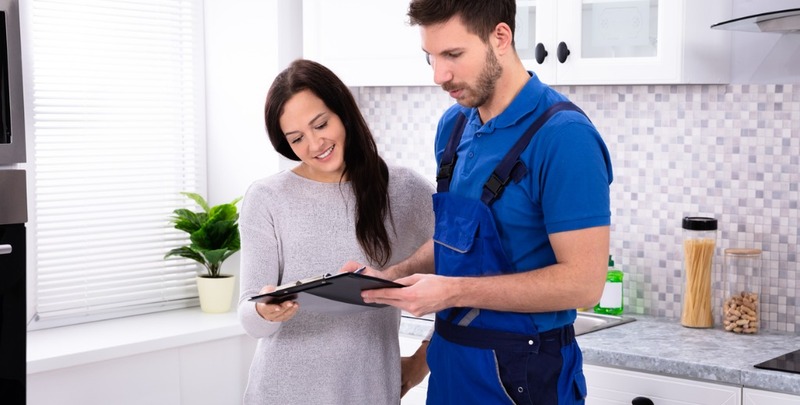Everything You Need to Know About Plumbing Inspections

When was the last time you had a plumbing inspection in your home? Your first thought might be: What exactly is a plumbing inspection and why would I need one?
You might be surprised at just how important a professional plumbing inspection can be in keeping your system in good shape and the water flowing. There are a number of reasons to get a plumbing inspection. But first up, what exactly does it entail?
What is a Plumbing Inspection?
A home plumbing inspection is a comprehensive examination of your plumbing system by a qualified plumber. It goes way beyond an initial glance, more than just checking if taps work and the toilet flushes.
The licensed plumber will identify risks and possible problems, and also provide solutions to the faults and potential risks.
The complete plumbing inspection checklist will include:
- Water pressure test – Low water pressure can be annoying and time consuming, while high water pressure is potentially dangerous for your fittings and plumbing system.
- Hot water unit check – This is an integral part of your water usage and water heaters need regular maintenance.
- Toilet test – All toilets will be tested for leaks or excessive running.
- Check flexible hoses – These hoses replaced copper pipes a decade ago but can leak or burst when they start to disintegrate.
- Drain test – It’s important for your drains to be clean and healthy, otherwise you’ll be dealing with blockages, backflow, leaks and smells.
- Inspection of sinks and bathtubs – All thoroughly checked for leaks, cracks and blockages.
The service is essentially an inspection of all points where water flows through your home, including outdoor plumbing fixtures and the main sewer line.
Plumbing inspections can take about two hours, but they can vary depending on the size of the home, and licensed plumbers recommend getting an inspection every two years.
Why Do I Need a Plumbing Inspection?
The obvious reason to get a home plumbing inspection is to avoid future plumbing emergencies.
Good maintenance identifies or prevents problems before they happen, or at least before they escalate. Essentially it will stop small plumbing issues from growing into costly disasters.
You might also be selling your home, in which case a recent clean bill of health on your plumbing can be a selling point. On the other hand, if you’re buying a home, an inspection is advisable if one hasn’t already been done. Essentially it’s a way to protect the future of your home.

Is a DIY Inspection Advisable?
This is not really a job for the home handyperson, unless you’re a fully qualified and licensed plumber.
The professional plumber has the expertise, experience and the right equipment to carry out a comprehensive examination of your plumbing system.
A less thorough inspection will not reveal all potential problems, which is the entire point of the exercise.
What Does an Inspection Cost?
The cost of an inspection depends on how thorough the particular service is. The average cost of a visual inspection by a licensed plumber is about $200 nationally. A more comprehensive inspection using cameras to examine pipes and drains might cost about $500. These figures will vary from state to state.
Any repairs that result from an inspection will cost more as extra labour, parts and equipment will be involved.
So What Happens Afterwards?
When a home plumbing inspection is completed, you will be provided with a detailed report on what was checked and tested, what potential problems were detected and a suggested plan of action if one is necessary.
Quotes can be provided to fix problems, if any are detected. There may not be any need for immediate repairs, but if there is, your plumbing inspector will advise you.
The result will be peace of mind and a plumbing system that is working smoothly and efficiently.
Please note: This information is provided for advice purposes only. Regulations differ from state to state, so please consult your local authorities or an industry professional before proceeding with any work. See our Terms & Conditions here.